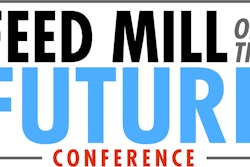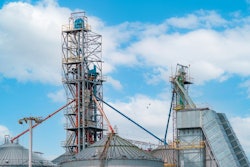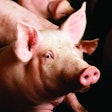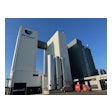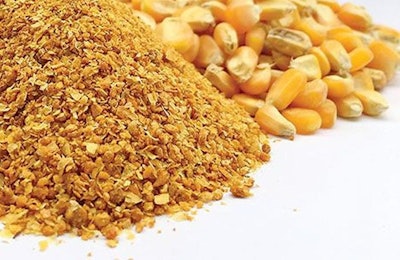
The country’s consumers are not generally aware that 55% of imported animal feed raw ingredients are GM.
At a recent session of the Senate of the Republic of Ireland, it was revealed that 55% of imported animal feed raw materials last year were genetically modified (GM).
In 2021, 5.4 million metric tons (mmt) of feed was produced in the Republic of Ireland. According to the agriculture department, this represented an increase of 6% from the previous year. Around 1.3 mmt — mainly grains — was grown in the country, and the rest is imported. Of the imports, more than half of the volume was GM, a fact which is not widely known by the country’s consumers.
Comprising the 2.3 mmt of imported feed ingredients were mainly corn and corn byproducts such as distillers dried grains, soybean meal and soy hulls, according to Minister of State at the Department of Agriculture, Food and the Marine (DAFM) Pippa Hackett.
Of these imported raw materials, around one-quarter comes from other European Union (EU) member states — mainly as corn and rapeseed meal. Of the balance, the majority comes from Argentina, the U.S., Canada and Brazil — where GM crops can be and are widely grown.
Hackett was speaking at a debate last week in the Seanad (Senate) of the Irish legislature.
Irish concerns over GM
Independent Sen. Victor Boyhan raised the issue of the scale of GM feed ingredients in the nation’s feed after a social media post from the Irish Rural Association. While acknowledging that the presence of GM ingredients is clearly labeled on feed packaging, the association said the general public is likely to be unaware of the high proportion of GM raw materials in animal feeds.
AS a member of the EU, GM products must be authorized by EU bodies before they can be sold on the market.
Furthermore, Hackett said the Irish government takes a “positive but precautionary” approach to biotechnology. It follows the opinions of the European Food Safety Authority (EFSA) and the Food Safety Authority of Ireland (FSAI).
“We need bigger labeling and more education and to be upfront and open, honest and transparent with the fact that we are using GM foods to feed animals in this country,” Boyhan said.
Consistent supply of quality feed ingredients
For Irish dairy and meat producers, Hackett stressed the importance of consistent supplies of high-quality feed ingredients at fair prices.
“The reality is that the feed materials containing GM make up the bulk of the market, and provide the lowest-cost source of proteins for feed manufacturer to use in their products.”
Use exclusively of non-GM raw materials would add EUR60 to EUR100 (US$62 to US$103) to the cost of each metric ton of feed, according to the minister.
This would put Irish producers at a competitive disadvantage with those in other countries, and would drive up all feed prices.
Ireland’s climate favors grass growth, and more than 80% of the total feed intake by the nation’s cattle and sheep is in the form of pasture, hay and silage. However, conditions do not allow for the cultivation of corn or high-protein vegetable proteins such as soybeans. As a result, the minister said, the poultry and pig sectors continue to rely on imports of these feed ingredients.
Irish Republic to introduce new ‘fair trade’ body
This week, the Department of Agriculture, Foods and the Marine announced the Cabinet’s approval of the Agricultural and Food Supply Chain Bill 2022.
This is will lead to the presentation of the legislation to the principal chamber of the Irish legislature, Dáil Éireann. Once enacted, it will establish a new statutory authority, the Agri-Food Regulator.
“It will shine a light on the sector to help improve the position of the primary producer and it will also bring greater transparency and fairness,” said Minister Charlie McConalogue. “The regulator will promote and enforce the principles of fairness and transparency for agrifood suppliers.”


